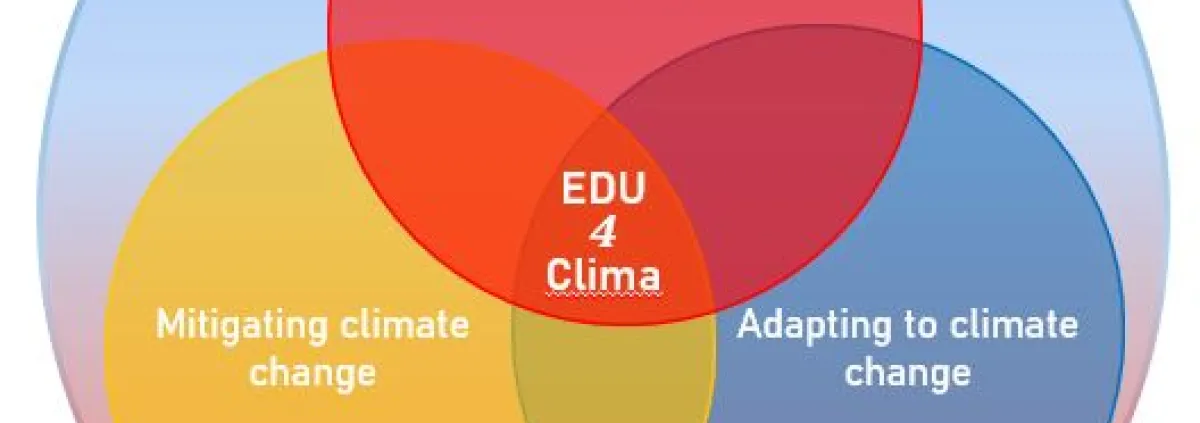Level: For Beginner and Intermediate Setting: Non-Formal Format: In-person Subjects: Science subjects |
The project EDU4clima aims at promoting climate change education through innovating teaching practices in the Research, Innovation and Dissemination Hub at Finokalia, in Crete Greece. In this Hub visiting students have the opportunity to cultivate green competences in order to tackle the complex problems climate change posses and reflect on their future role in addressing them. This project has been successfully implemented for two years and more than 1000 secondary education students from 40 different schools have participated during this time with more than 400 students are expected to visit this upcoming school year.
Learning for climate change in EDU4clima
This project is based on experiential - exploratory learning and aims on the one hand to present the basic concepts that define anthropogenic climate change and on the other hand to present the research work carried out at Finokalias environmental station related to the composition of the atmosphere and air pollution, the driving force of climate change, which we are experiencing after the industrial revolution.
The educational objectives are for students to be able to:
- Evaluate climate data and analyze the earth's energy balance that reflects climate change (e.g., What does climate change mean?)
- Understand the impacts of climate change, starting locally and moving to the global level, on environmental, biological and social systems (e.g., Why does climate change matter?).
- Compare climate change mitigation and adaptation strategies (macro and micro) based on current environmental, economic, political and ethical impacts (e.g., What can we do?).
- Especially for students, an additional goal is to be able to process real experimental results from measurements at the Finokalia station, so that they can step into the role of a researcher and draw conclusions, see the work of a researcher first hand and learn about other new climate change related professions that may be their future profession.
The project has been appropriately structured to be interactive and experiential and requires the active participation of students, including short interactive presentations and films and the use of an online assessment tool after each thematic module as well as activities outside the classroom. Real-time assessment was used to assess students' understanding of the concepts presented, with emphasis on areas where students show low levels of understanding or where they themselves require further clarification.

Simple experiments-demonstrations were carried out to demonstrate in a simple way phenomena such as the ability of carbon dioxide to bind infrared radiation, the phenomenon of bleaching, the effect of ice melt on sea level and salinity, the basic principles of water circulation in the oceans, the increase in acidity in the oceans and its effect on living organisms. Finally, a visit from the Hub to the Finokalia environmental station took place where the instrumentation used will was presented to the students and discussed with the scientists at the station.

Promoting climate action in EDU4clima
Students participating in EDU4clima after their visit in the Research, Innovation and Dissemination Hub are encouraged to act as “Climate Ambassadors” for their school. In this action students were called to organize a school event for the students and parents of their local community. As “Climate Ambassadors” students communicated to their community their experiences during their visit at the Hub. These events included science shows, poster making as well as filming short videos. In developing these actions students had action not only to the teaching material with which they interacted during their visit but also scientific data from the environmental station of Finokalia.
Funding
The EDU4clima project was funded as a part of the national 3rd Call for Action “Science and Society” “Research, Innovation and Dissemination Hubs”.


Dear Ioannis Metaxas
Congratulations on such an interesting project!
I had the pleasure to read your full submission, including your survey, and it is an inspiring learning scenario. As explained in the call page and in the survey, I have now proceeded to curate your post to include all the relevant tags.
However, I believe that the community would benefit from learning more about your methodology, subjects involved in the project, and a more detailed explanation of the learning scenario.
Would you mind editing your blog post adding this information for the rest of the community?
Please log in or sign up to comment.